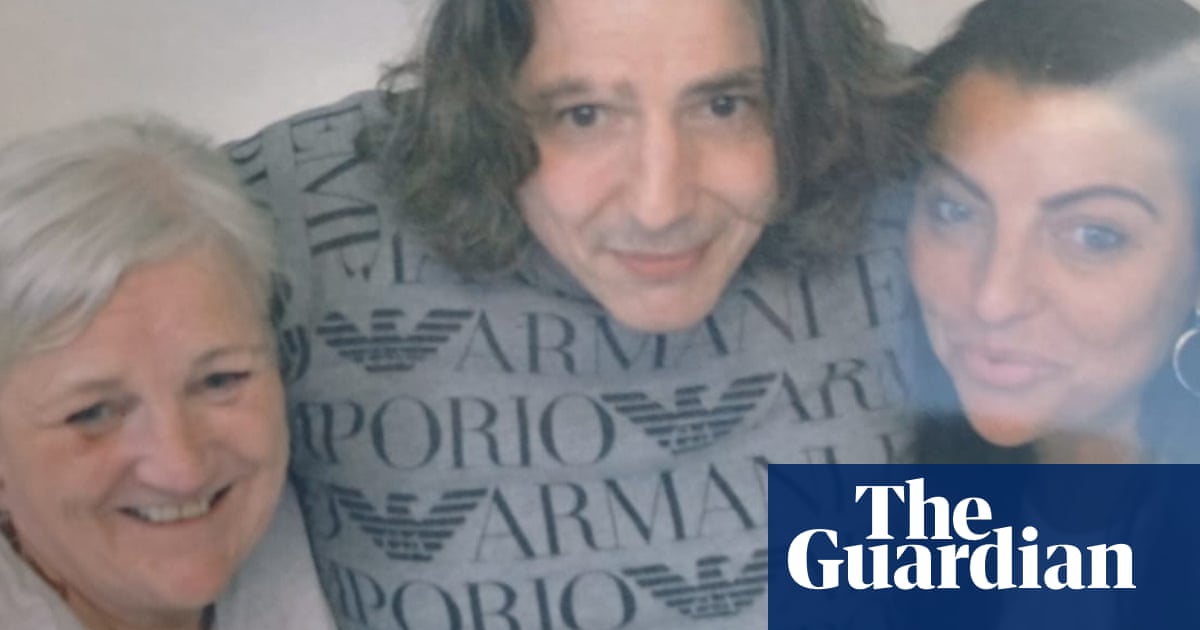A prisoner driven to psychosis after beingjailed for more than a decadeunder an indeterminate sentence has been moved to a hospital for a treatment after a six-year battle by his family and supporters.
Thomas White was sentenced to a minimum of two years in custody under the imprisonment for public protection (IPP) scheme in 2012 for stealing a mobile phone, but remains in prison over a decade later.
His family said the undefined nature of his sentence, and spending years in prison without a release date, caused White to develop serious mental health problems, and he was eventually diagnosed with paranoid schizophrenia.
“He just started to get sicker and sicker – the present system is definitely psychiatric abuse,” his sister, Clara White, said. “Without a doubt, he would have died in prison. He was dying. He was dying in front of us. We could see it. But now he has a chance of survival.”
She said the family found out last Wednesday that White will be transferred to a medium secure mental health hospital, a move they have been fighting for since 2019. He is currently living in the hospital ward at HMP Manchester.
“I did cry. It was unbelievable. It was, oh my word, we’ve achieved what we’ve set out to do. I called my family, my mum, and there were tears in every family home,” she said.
“This is the first time that he’s actually going to be cared for properly. Unfortunately he’ll probably be there for many years. He’s still under the IPP though. The stain of IPP has not been removed from him.”
Clara White said her brother had no history of mental health problems before his imprisonment, but his health deteriorated drastically in 2016 after four years in prison with no end in sight.
He started wearing his bedsheets as clothes, claiming he could hear voices through the air vents of the cells, and “speaking in Roman numerals” down the phone. On one occasion when his mother visited him in prison, she had to ask a prison officer to identify him for her.
“For a mum to not recognise her son, that’s how bad it was. He was disheveled. He’d lost half of his body weight,” Clara White said. “His mind had been broken. Thomas spent inhumane periods in segregation. So he was alone with no human contact with his Bible talking to himself. I think somewhere along the line, something broke in Thomas and never repaired again.”
She added that in the 13 and a half years he had been in custody, he had been moved between 13 different prisons, with his family sometimes having to drive for many hours to visit him.
White’s case was previously highlighted by a UN torture expert as “emblematic of the psychological harm” caused by indeterminate sentences.
IPP sentences were banned 12 years ago (four months after White’s sentencing), but more than 2,000 people are still in prison serving an IPP sentence and at least 90 IPP prisoners have taken their own lives.
The Labour peer Tony Woodleyhas introduced a private member’s bill to resentence prisoners still under IPP sentences, but after decades of campaigning, many have little faith it will result in change any time soon.
“I’ve got so much respect for Lord Woodley trying to get rid of IPP sentences but do I think that will happen? No. And I’m absolutely glad we went down the hospital route because my brother wouldn’t have lasted much longer waiting for a bill to go through,” Clara White said.
She has been supported by the pastor Mick Fleming, from Church on the Street, who has highlighted White’s case in his latest book, Walk In My Shoes. The pair plan to continue fighting on behalf of other IPP prisoners, and to get White’s IPP sentence removed.
“We’re not going to walk away and forget about the others, hundreds of other people need help,” she said. “Thomas doesn’t hope. He doesn’t know what hope is anymore. He thinks that they’re going to change their mind and keep him in prison. That’s what IPP does to someone.”
